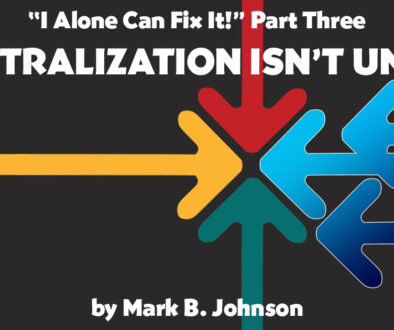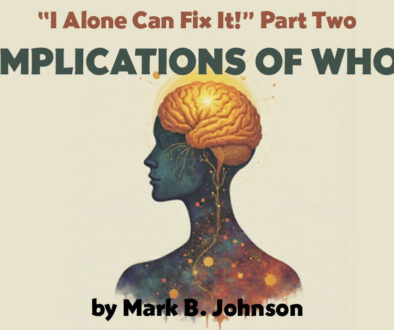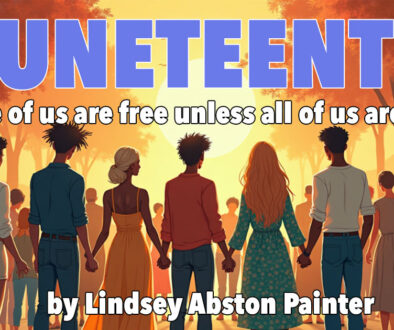Depression Isn’t What You Think It Is
by Heloise Hardcastle | 24 May 2024 |
I started feeling depression before I knew what it was.
My parents weren’t aware of it—or if they were aware there was something different about me, they didn’t know what to do about it. I suppose that much of the time I acted like an ordinary little girl.
But there were differences. For one, I took the tensions that happen in everyday play far too seriously. Their effects lasted long after the event was over, leaving me feeling bad about myself.
Even back then, I withdrew. When I think about it now, I wonder why no adult ever wondered why one little girl left the group that was (back then) jumping rope together, and sat alone in the far corner of the schoolyard during recess thinking melancholy thoughts about her place in the world.
By the time I got to high school and college, these bouts of melancholy had become a regular thing. I knew there was something wrong with me, but I misidentified it: I thought it was because I was unlikable, or ugly, or stupid. Sometimes I avoided talking to anyone. I told myself it was because people didn’t like me, when in fact they were thinking I didn’t like them.
For me (and most of the sufferers I’ve talked to), depression isn’t mere sadness. It has a quality of fear, like I’m on a razor’s edge of some danger, one I can’t always name. I’ve heard it described as an oversensitive “fight-or-flight” mechanism, though I don’t know how accurate that is.
Reasons and causes
One of the confusing things about depression is that there isn’t always a clear relationship between identified reasons and causes. Sometimes something happening to me would be the apparent reason that I got depressed.
Yet the reason, as I would try to describe it, would seem to others to be fairly minor, the reaction out of proportion. Something that would be a minor annoyance to most people—at most a half day in a funk—would lead me to deep catastrophizing. My whole life was falling apart. No one would ever love me. I would have to drop out of school and become a bag lady.
Yes, it could get that silly. My mind could jump from a mildly unpleasant event to horrible consequences—and they felt real. Someone said something unkind to me. Someone I liked ignored me. I found a stain on my favorite top. I compared myself to someone else, and I thought I looked bad or I felt unsuccessful. I did less than perfect on a test. (Having to overachieve was, for me, one of the results of depression: you have to try harder to overcome your deficiencies.)
Any of these things could translate into “I’m such a failure. I’m so stupid. I can’t do anything right,” which could mean slipping away and not talking to anyone for the rest of the day.
A life of its own
It took years for me to realize that my depression had a life of its own, that it correlated poorly with life events. The mind wants to assign causes, and when I began to feel horrible, everything around me turned into reasons why I felt horrible.
And it was always my fault: my inferiority, my stupidity, my unlikeableness. Sometimes a bad event did trigger the bad feelings. But those feelings, coming from my brain’s chemicals, were ready to manifest themselves, and when they did, my mind tried to make sense of what I was feeling.
People cope with this feeling in various ways, but for me it was to withdraw.
There is another kind of person who copes by blaming others—taking a defensive, oppositional stance toward the world. That wasn’t my experience. There was always something wrong with me. To this day, even after therapy and other treatments, at the slightest provocation (sometimes even a memory of something that happened decades ago) my mind will pop out, “Oh, you’re so stupid. What a loser!”
I wish back then someone had explained this to me—though perhaps I couldn’t have understood it. My parents were struggling with their own mental health: depression can run in families, and depressed parents don’t automatically know how to help depressed children, especially when the problem is denied, or expressed in terms of a no-win religion.
When I married, my husband at first went into the catastrophizing “My world is falling apart” rabbit hole with me—that is, he believed my fears. He eventually realized that they were overblown: “No, that’s not true. You’re actually an intelligent, attractive, interesting person and we have a good life.” But that didn’t help either. “It’s like trying to cover a volcano with a Band-Aid,” he said once. “It’s impossible for you to hear the truth that might make you feel better.”
Religion and depression
I grew up in the Seventh-day Adventist Church, which provides splendid opportunities for anxiety and depression. From the myriad of things that I should do right but could do wrong, to end-time fears, to what an invisible God thought of me, there was much to be afraid of and to feel bad or guilty about.
My anxiety manifested itself in religious rigor. Even as a child I knelt by my bed for an hour praying every night, feeling compelled to cover a long list—if I missed any part of it, things might turn out worse. Again, I wonder why my parents didn’t identify this as a sign of a troubled child, rather than seeing it as my being “such a religious child.”
I went forward for every altar call, because it might be my last chance. The teen years were particularly troublesome, because I had the normal temptations of that age, and felt guilty for my thoughts.
I discovered that depression wasn’t something you talked about in a religious setting. It was considered a spiritual problem: you were supposed to pray and read the Bible and be over it. When I confessed it to a teacher in the academy, he said, “Ellen White tells us that it is a sin to be depressed.” I don’t know where or if Ellen White said that, but telling it to a teenager didn’t help.
There were lots of Bible passages that could be trotted out as an antidote, and maybe they encouraged some people. They only made me feel like God wasn’t responding to me like He apparently did others.
I prayed a lot to feel better. Sometimes I prayed about the things that were making me feel bad: that I thought I wasn’t popular, or pretty, or smart, or righteous enough, and could God please fix that. These self-evaluations were false, but I didn’t know that.
Anyway, prayer never helped much. I even tried fasting, which didn’t work either.
What depression isn’t and is
Depression isn’t just having a bad day, or having something happen that makes you feel bad. Everyone has those. It’s normal to feel bad when someone hurts your feelings, or when you have a loss—job, marriage, or a death—or even to feel bad, at least for awhile, for some smaller losses.
Depression does something different to you. Unlike normal brief episodes of feeling regretful or sad, depression spirals down deep. It exaggerates the bad feelings into a crippling pain. For me, it brings back useless regrets from decades back that still have weight, as though they happened yesterday.
A friend said to me once, “You have so much going for you. So, just look at all of that and decide to be happy!” He couldn’t understand that when in a deep depression, your negative thoughts feel true even if you can prove they’re not. You feel it not just in your mind, but in your body—for me, a heaviness or emptiness right in my body core.
There are some depressive feelings that some people can “think” their way out of by logical problem solving—assuming there is an identifiable problem—combined with a “count your many blessings” sort of exercise. A process called cognitive behavioral therapy takes that approach. For some people, it helps.
But to tell someone with depression to “just buck up,” pray more, or “quit thinking about yourself and do something for someone else,” usually isn’t helpful. The implication, when you say such things, is that we’re putting it on, that we are just being self-pitying, or acting helpless to get out of taking on the problems of life. I’ve heard people scoff, “Oh, all these wimpy privileged people who let themselves get depressed so they can get out of work, take drugs, and feel sorry for themselves.”
In fact most of us, most of the time, continue doing things: we keep house, take care of our loved ones, go to work, interact with people even when we feel like we’d rather go into hiding. Mostly we don’t tell anyone. But just keeping busy doesn’t make it go away.
The kind of depression I’m talking about is, most clinicians agree, hard-wired. It has to do with the way our brains work. Serotonin, dopamine, norepinephrine, and related brain chemicals are out of whack. Understanding that made a big difference to my understanding of why I was depressed, and why I couldn’t climb out of it on my own. For some people, a chemical adjustment by means of medications can alter their feelings in a matter of weeks.
Does talk therapy help? Some studies seem to say that for moderate depression, medications combined with talk therapy work better than either alone. But neither are one-size-fits-all: it’s hard to find a compatible counselor, and it’s equally hard to find the right antidepressant medications. Even if the medication works, it may not work long term, or it may have side-effects as uncomfortable as the disease itself.
Life now
I was hoping that by the time I got older, this would all have gone away. Life is better now than it was at its worst, but depression hasn’t disappeared. Many people, Christians especially, feel guilty about going to a psychiatrist and taking antidepressant drugs. I long ago got past that, I’m glad to say.
But medications aren’t a perfect solution; I am not constantly depressed, but I’m always expecting it.
(Many people’s depression does cycle, for reasons that the sufferers usually can’t identify. We just know that sometimes we feel better than at other times. If it cycles from depression into mania, that’s called bipolar disease, which is a different thing.)
I have ways of getting through bad days: medication, getting outside, staying busy, talking to understanding friends and a supportive husband, and sometimes just lying down and reading until the worst passes.
But sometimes I still sink very low. I’ve never seriously contemplated suicide, but I have wished I had a different life. I feel sad for my family, who have had to endure Mom’s and wife’s bad spells.
I would never tell someone not to bother praying, but I am pretty sure that prayer alone isn’t enough, any more than you can pray your way out of diabetes or cancer. The encouragements of religion may be helpful for some kinds of sadness, but they aren’t a long-term fix for people with chronic depression.
And, by the way, lecturing your depressed friend or loved one with Bible texts and Ellen White quotes is rarely helpful.
I write all of this for two reason. First, if you’ve suffered this, you’re not alone. And second, to help those who haven’t experienced depression be more understanding of those who do.
Heloise Hardcastle is a pseudonym.




